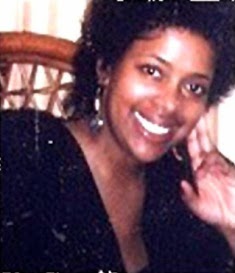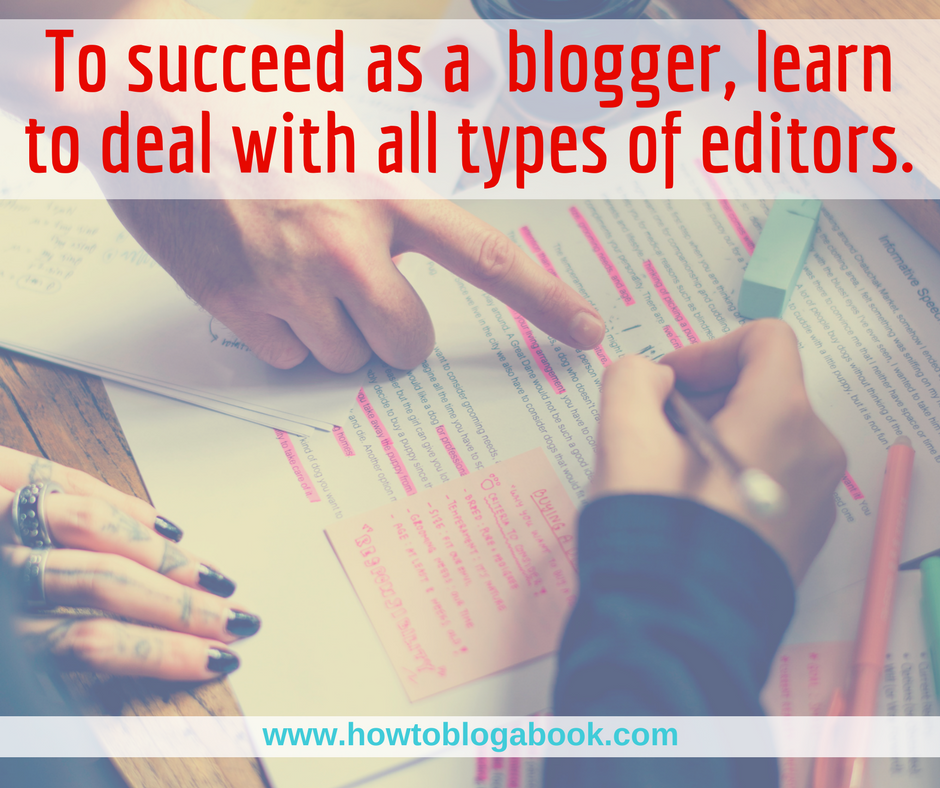If you want to produce quality work—as a blogger and an author—you must learn how to work with all types of editors—even challenging ones.
If you land guest posts at top-tier sites, freelance gigs, or a contract with a traditional publisher, your work will be scrutinized by someone. Editors of all sorts, including blog owners, and professional editors will “polish” your manuscripts. Some of these will be the easy going and easy to work with while others will not.
Though we typically hold editors in high regard (as we should), some are as challenging as advanced trigonometry. As you continue to hone your craft and keep your skills sharp, also learn to deal with “challenging” editors.
Let’s face it. Editors are human, and each has strengths and weaknesses. And just like any other profession, there are good and bad ones.
The challenging editors may, in fact, be extremely good at their jobs while the easy-to-work-with types might not. However, the reverse could prove true for each as well.
In any case, it behooves you to make peace with this reality to go the distance in your career.
You’ll have to deal with editors, so develop a strategy to do so…no matter what.
Let’s examine why it’s important to learn to deal with challenging editors in particular.
3 Reasons you need to learn to deal with difficult editors
1. Like taxes, challenging editors are sometimes unavoidable.
Even as independent freelancers and owners of our blogs, we don’t always have complete control over the entire creative process and with whom we get to work. For example, you may love the pay rate associated with a particular publication or the popularity of a certain blog, but that doesn’t necessarily guarantee you’ll have a pleasant or fair experience working with the editor associated with your project.
Here’s a case in point. When I first landed a regular blogging job many years ago, I was elated. The site was well-regarded, and I was over the moon to be chosen from many qualified applicants. Initially, it was a fun gig, and the person that hired me was pleased with my work. Fast forward, six months later. I ultimately ended up quitting because the editor, in his emails and correspondence with me, was aggressive and used excessive profanity in critiquing my work. It made me uncomfortable and, well…I felt it was unprofessional and unnecessary. I never addressed this in leaving; I simply moved on. I learned that every relationship needs boundaries.
2. Learning to work with challenging editors helps you to stay committed and focused on what matters.
Important things include sharing your unique message, achieving your career goals, and making a difference in the world. Sometimes strife can serve as a distraction from your goal; don’t let it. Make it a point to “keep your eye on the prize.”
3. Bad or challenging editors can sometimes have good connections.
Most editors, categorically speaking, have a lot of connections and inside information within the publishing industry that can enhance and advance your career—particularly if you don’t prove problematic. Choose your battles wisely. Don’t rant about editors on your blog or bad mouth them in you social media circles. You never know who might be reading. Burning bridges unnecessarily is career suicide.
What qualifies as a “Challenging” Editor?
For greater clarity, below are a few examples or descriptions of challenging editors you may encounter at some point in your career.
- Editors that don’t pay on time or fail to pay at the rate initially agreed upon.
- Editors that are nit-picky and unreasonable in their expectations.
- Editors that are condescending and demeaning in their interaction.
- Editors that seek to make your voice and style a replication of theirs.
- Editors that are indecisive (may request numerous revisions or changes in direction for a project or piece) before ultimately publishing it.
- Editors that routinely lose your files and ask you to resend.
- Editors that don’t value your efforts or your worth.
- Editors that don’t have style guides or writer’s guidelines posted on their sites or in their job descriptions yet expect you to know exactly what they want.
3 Tips to Help You Work with Editors
Armed with this information, here are four tips to help you work successfully with challenging editors and to enjoy a successful and prosperous career:
1. Lighten up.
See the humor in it. As a wise man once stated: “If you can laugh through it, you can live through it.”
2. Remember to choose your battles wisely.
Minor word choice differences shouldn’t merit a significant disagreement. Don’t take big stands on small issues.
3. Develop a thick skin.
Revisions, criticism, and creative differences come with the territory. Whether you’re dealing with editors, reviewers, or blog commenters, apply what you feel is valid; ignore the rest. Remain professional. And most importantly, take the high road; there’s less traffic.
4. Cut your losses early.
Unfortunately, not all collaborations are a “good fit.” I’ve worked with some really lovely people over the years, who were not necessarily effective or competent editors. And in some cases, there was simply a difference in work ethics. It happens. When it does, don’t hesitate to end things as soon as you become aware of the problem. It allows the relationship to end on a relatively positive note, and minimizes stress for all parties.
Additionally, writer, editor, and author Henry Jones offers the following advice: “We’re never so ‘gifted’ or educated that there’s nothing left to learn. Also to avoid disagreements and drama, read your work aloud before you give it to the editor. If you do, you’ll literally ‘hear’ your mistakes, before submitting them.”
Fortunately, in my lengthy career as a professional writer, most of my dealings with editors have been good, nurturing and mutually-rewarding. Some of them have even become my friends. With these tips, I trust that your relationships with editors or all types will survive and prosper too.
What’s your strategy for working with editors?
About the Author
 Jennifer Brown Banks is a veteran freelance writer, relationship columnist, ghost writer, award-winning blogger and author. Her work has appeared in various online and print publications including: ProBlogger, Men With Pens, Write to Done, Tiny Buddha, Women on Writing and the Well-Fed Writer E-zine.
Jennifer Brown Banks is a veteran freelance writer, relationship columnist, ghost writer, award-winning blogger and author. Her work has appeared in various online and print publications including: ProBlogger, Men With Pens, Write to Done, Tiny Buddha, Women on Writing and the Well-Fed Writer E-zine.
Banks is the managing editor of Coffeehouseforwriters.com, where she also teaches creative writing classes. When she’s not at the keyboard, she loves cooking, reading, “Jeopardy,” music, and shopping.
Find out more about Jennifer here: Penandprosper.blogspot.com/


Leave a Reply